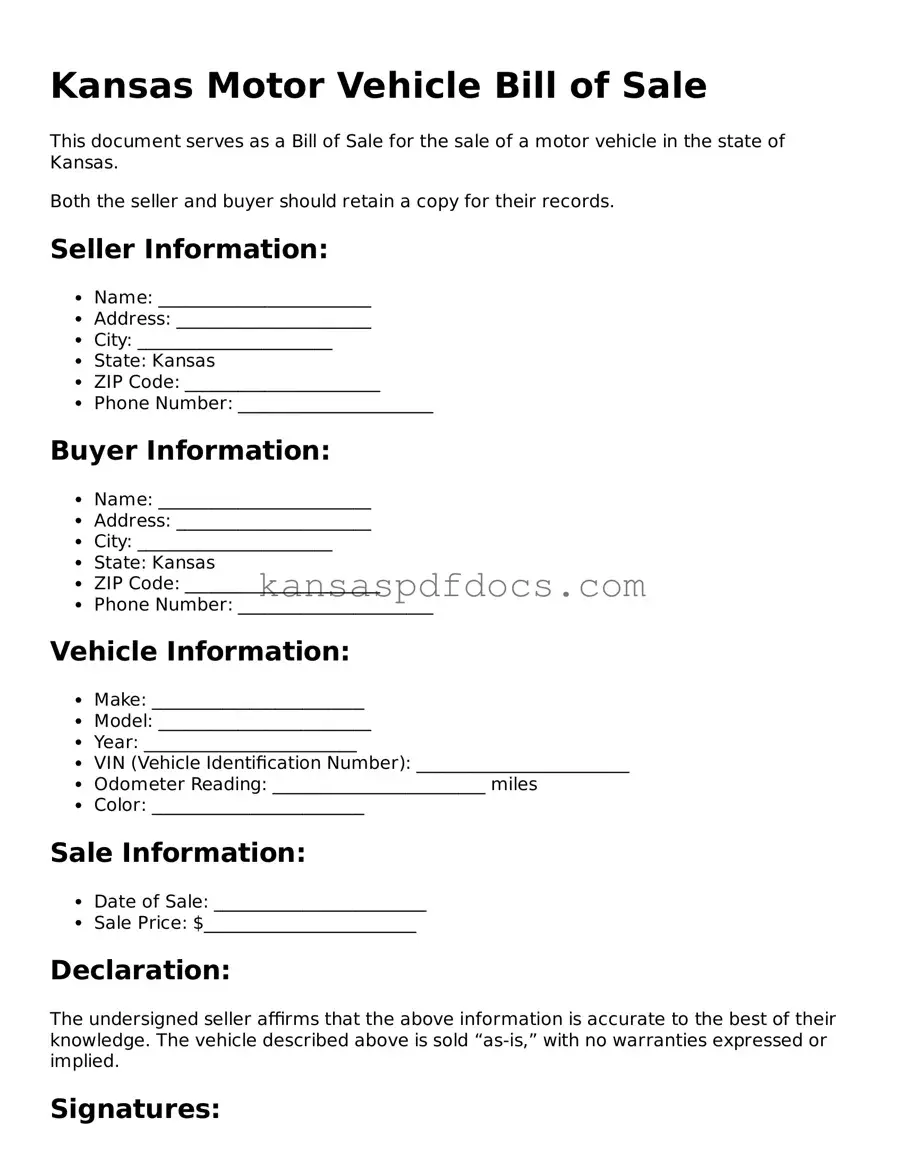Valid Motor Vehicle Bill of Sale Template for Kansas State
The Kansas Motor Vehicle Bill of Sale form is a crucial document used in the transfer of ownership for motor vehicles in the state of Kansas. This form serves as a legal record of the sale, providing essential details about the vehicle and the parties involved in the transaction. Understanding its components can help ensure a smooth and compliant transfer process.
Access This Form Now

Valid Motor Vehicle Bill of Sale Template for Kansas State
Access This Form Now
Your form isn’t ready yet
Edit and finalize Motor Vehicle Bill of Sale online without printing.
Access This Form Now
or
Get PDF Form
